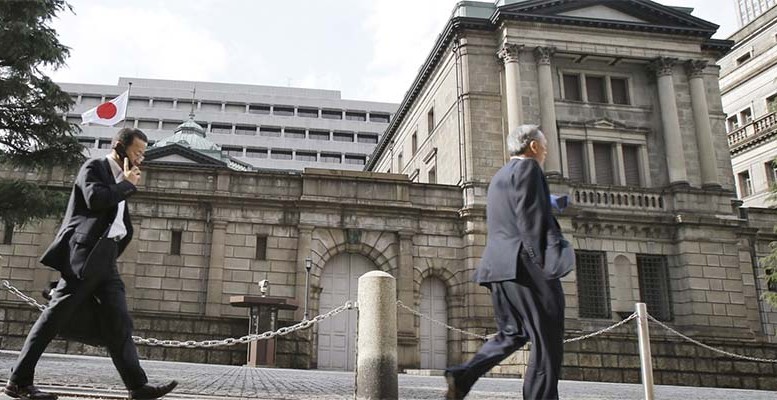Julius Baer Research | After last Thursday’s European Central Bank (ECB) meeting, the US Fed and the BoJ are due to report this week. Will these three heavy-weight central banks do whatever it takes to reflate the global economy? We believe definitely, yes, if reflation does not unfold as desired. Interest-rate policy normalisation is off the table for now, in particular for the Fed.
Next Thursday the US will report a very low annualised growth figure near 0.5% for Q1 2016 and on Friday the core personal consumption expenditure inflation for March will fall to 1.5% year on year. These developments and the disappointing Markit manufacturing purchasing managers’ index (PMI) for April at 50.8 do not advocate a near-term Fed rate hike. However, with the recent stock market recovery and lower real interest rates, US financial conditions have improved, so expectations now hint at a Fed hike in November. Should, however, financial market conditions deteriorate again this will be of course delayed further.
With nominal GDP around annualised 3% and real growth at 1.5% in Q1 2016, expected next Friday, the ECB can claim a victory on deflation. Still, the ECB will continue to do its utmost to keep the eurozone on the currently virtuous cyclical track. The BoJ, on the other hand, has exhausted almost all its policy options, when it comes to stimulating the economy. Nevertheless, the Japanese recovery is currently stalling and company surveys, such as the latest Tankan, as well as last week’s flash manufacturing PMI for April, signal no near-term cyclical relief. As a consequence, pressure is building for further BoJ action. Given past policy behaviour, we therefore expect the BoJ’s chairman Kuroda to be ready to surprise the markets again this year. ‘Helicopter money’, a consumption subsidy rather of fiscal policy nature, could become a frantic option, as Prime Minister Abe’s reform policies have disappointed so far.
*Image: Archive





